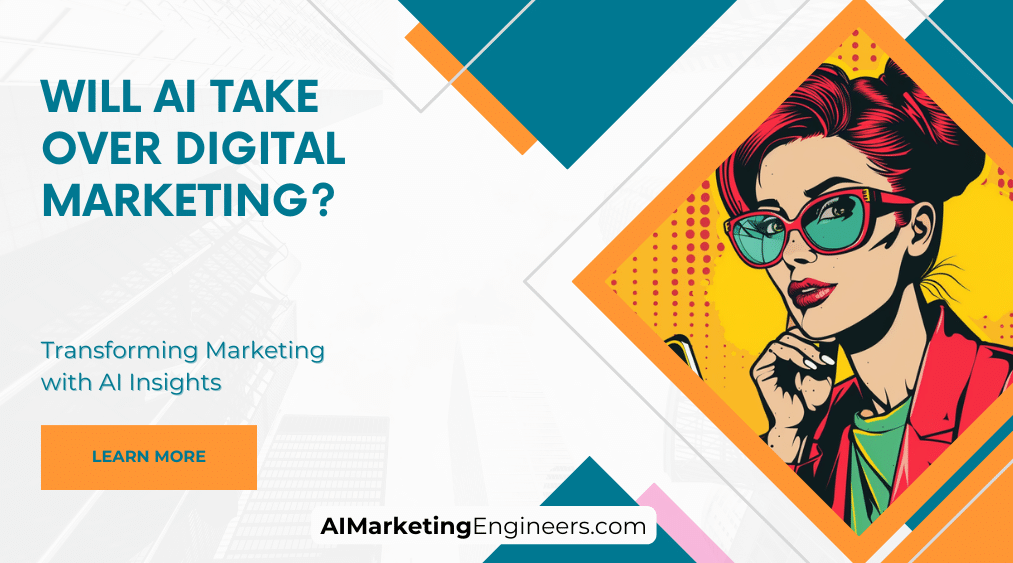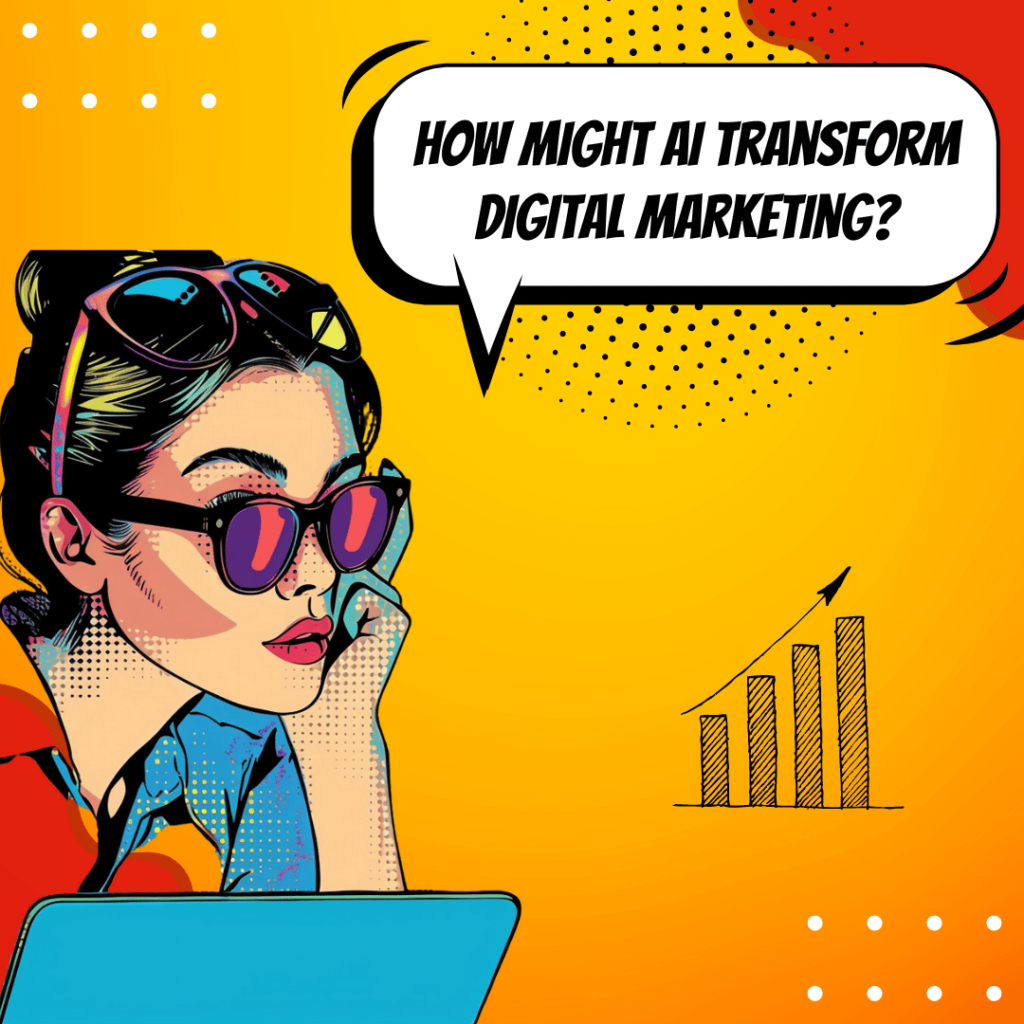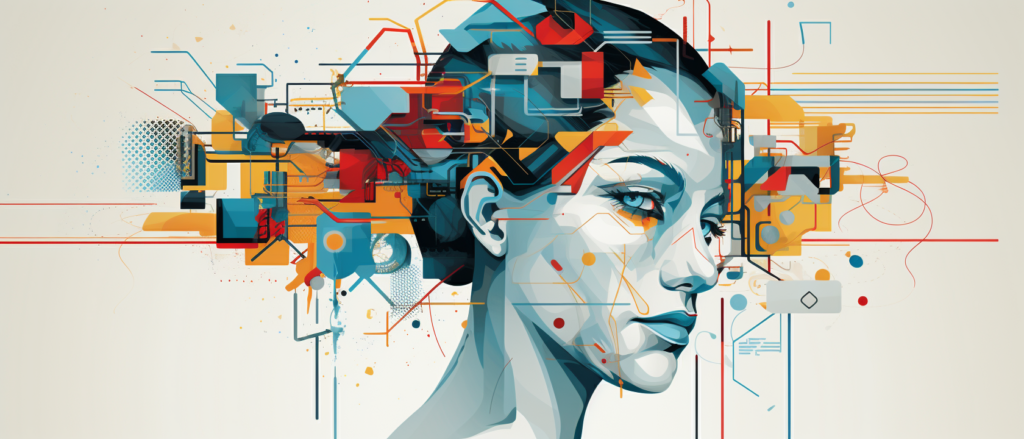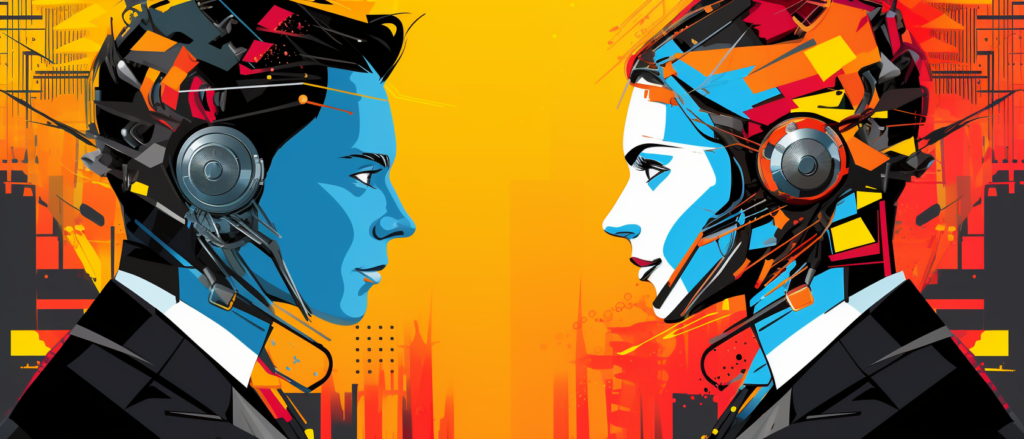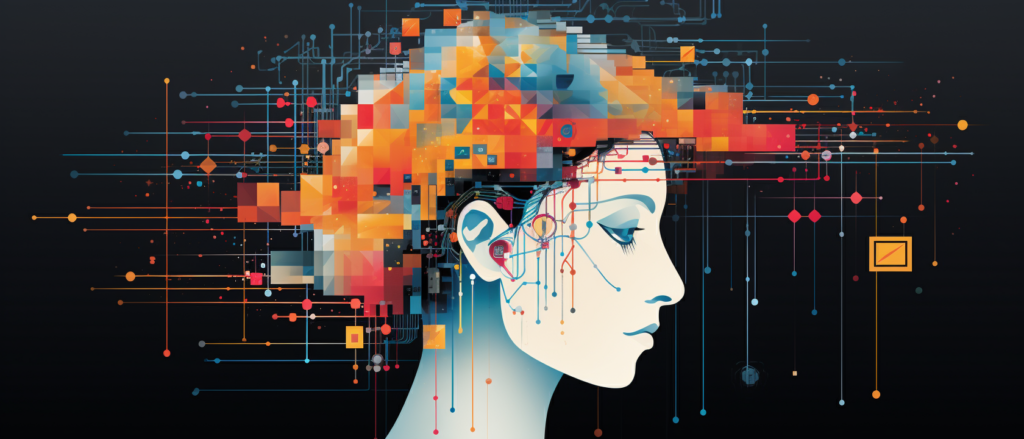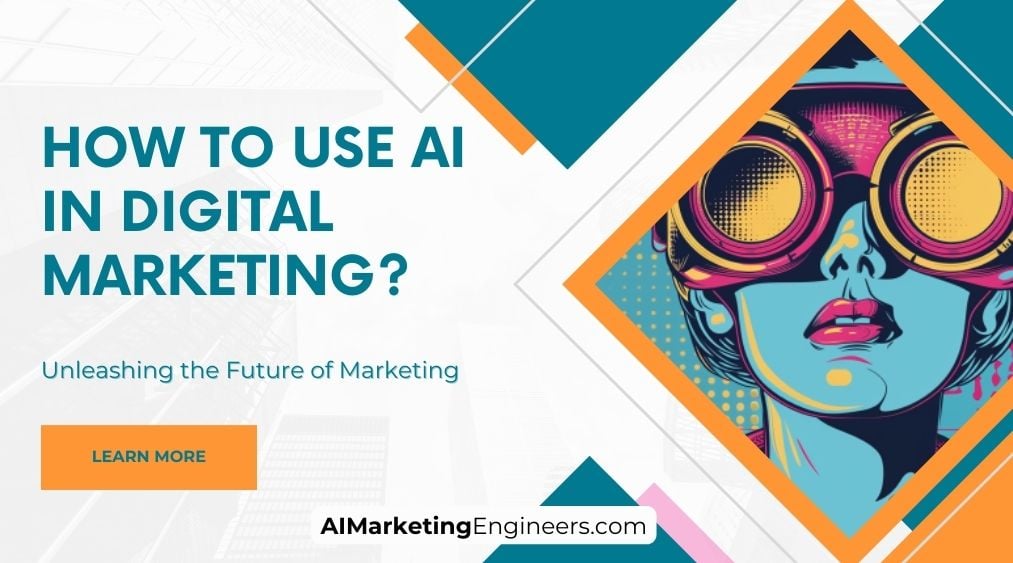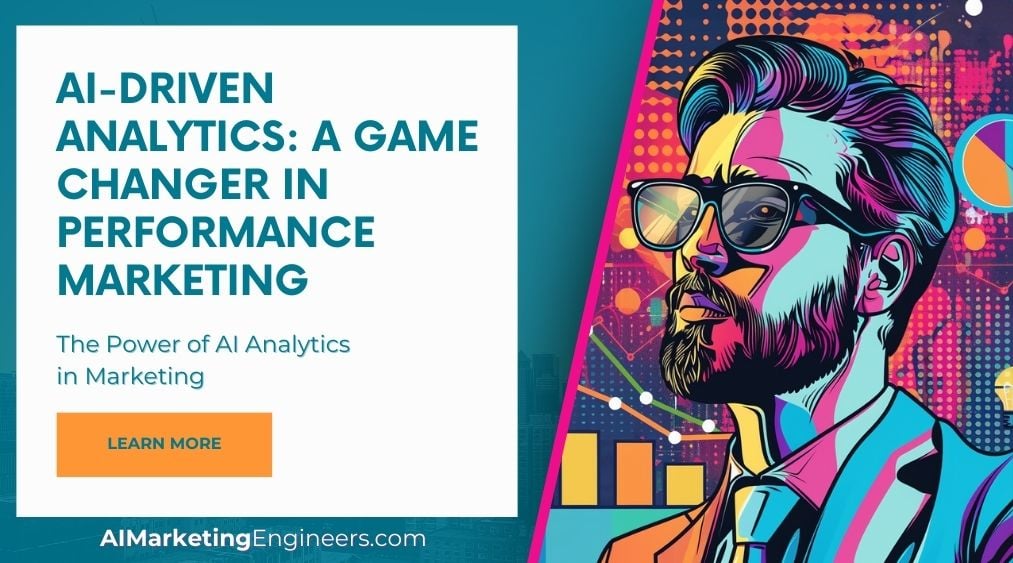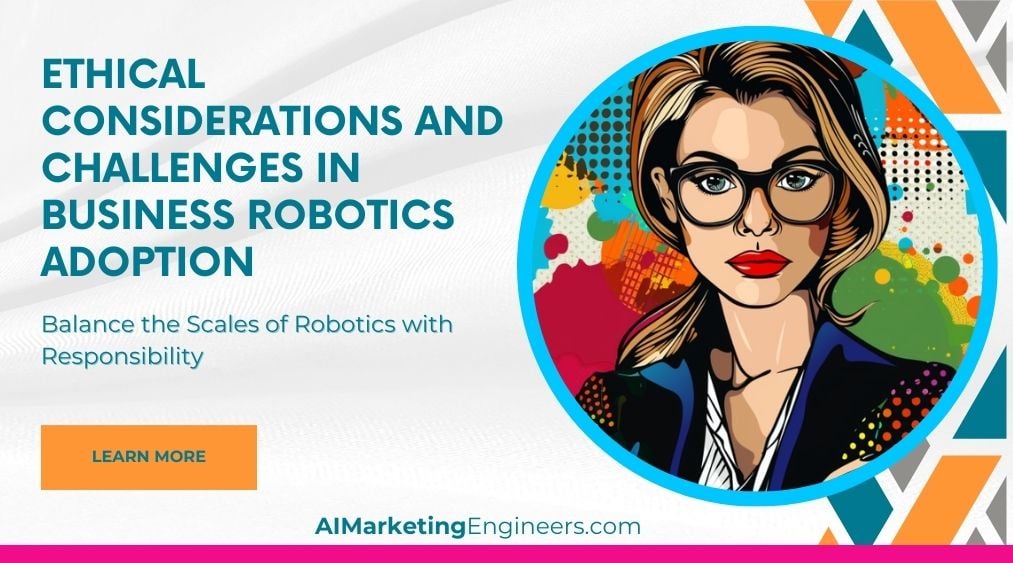Key Takeaways
✅ AI as a Complementary Tool: AI should be seen as a complement to human marketers, not a replacement, enhancing data analysis, precision, and efficiency in digital marketing campaigns.
✅ Balancing Act Required: Businesses must strike a careful balance between leveraging AI for its efficiency and maintaining the crucial human element, particularly in creating emotional resonance with audiences.
✅ Ethical Consideration is Crucial: To successfully implement AI in digital marketing, companies must address ethical concerns, including eliminating AI bias and safeguarding customer privacy, to maintain trust and comply with regulations.
Introduction
Imagine stepping into a world where your marketing efforts are amplified by a force so intelligent, it knows your customers better than they know themselves. This is not a glimpse into some distant futuristic utopia; it's the dawn of Artificial Intelligence (AI) in digital marketing. As we stand on the brink of this transformation, questions loom large: What will AI do to the industry?
Will marketers be sidelined, or will AI become their most invaluable ally? Let's dive into the heart of digital marketing's evolution and unearth the profound changes AI is set to unleash. Join us as we unravel how AI is already rewiring the very fabric of marketing strategies and the counterbalance needed to keep the human touch alive in an increasingly automated world.
Impact of AI on Digital Marketing
AI's infiltration into digital marketing is undeniable and profoundly transformative…
- Salesforce reports that 57% of marketers view AI as a crucial element of their operational revolution…
- HubSpot's findings reveal that over half of marketers utilize AI, particularly in customer service…
- Gartner's forecast suggests AI's dominance in the domain, estimating that AI-driven applications will pilot 40% of digital marketing endeavors by 2025.
- Enhanced targeting and personalization facilitated by AI and machine learning algorithms are expected to upsurge customer engagement significantly…
These statistics underline AI's steadily expanding influence on digital marketing.
Benefits of AI in Digital Marketing
1. Data Analysis and Insight
AI's prowess lies in its data processing capacities, allowing for swift and comprehensive analysis of vast datasets. This capability enables marketers to gain deep insights into customer behavior and preferences, leading to more informed decision-making and targeted strategies.
2. Automation of Repetitive Tasks
AI excels in performing repetitive and time-consuming tasks efficiently, freeing up human resources for more strategic and creative endeavors. This automation can streamline various aspects of digital marketing, from content creation to campaign management.
3. Enhanced Personalization
By leveraging behavioral data, AI empowers marketers to deliver highly personalized content and experiences to their audience. This level of customization can significantly improve engagement rates and overall campaign effectiveness.
Potential Risks of AI in Digital Marketing
1. Lack of Human Emotion
Despite its capability to automate, AI cannot emulate human emotions, which are crucial in crafting resonant and relatable marketing messages. This limitation can result in a lack of empathy and connection in AI-generated content.
2. AI Bias
The quality of AI's output hinges on its training data. If the data is biased or unrepresentative, the AI's decisions and recommendations can be skewed, leading to potentially harmful consequences for both the brand and its audience.
3. Privacy Concerns
The data-collecting aspect of AI solutions raises privacy alarms among consumers. The ethical use and protection of personal information are paramount, and any misuse can erode trust and damage brand reputation.
Future of AI in Digital Marketing
The trajectory of AI's integration into digital marketing indicates a robust and expansive future. As AI matures, it is poised to redefine marketing frameworks and strategic approaches extensively. The potential for hyper-personalization, predictive analytics, and autonomous decision-making presents exciting opportunities for innovation and growth in the digital marketing landscape.
AI Marketing Engineers Recommendation
In the rapidly evolving landscape of digital marketing, Artificial Intelligence (AI) is a game changer. With large volumes of data being generated every second, AI is uniquely positioned to process this information, derive insights, and automate tasks that were traditionally done by human marketers.
The AI Revolution in Digital Marketing
1. Data-Driven Decisions: AI algorithms can analyze complex datasets to understand customer behavior, preferences, and trends. Marketers can use this information to make more informed decisions, facilitating targeted campaigns with better ROI.
2. Customer Experience: Personalization is a cornerstone of modern digital marketing, and AI excels at providing personalized experiences to consumers by tailoring suggestions, content, and communications based on prior interactions.
3. Efficiency and Automation: From scheduling posts to managing customer interactions, AI can handle repetitive tasks, freeing human marketers to focus on strategy and creative initiatives.
4. Predictive Analytics: AI can forecast future customer behavior, market trends, and campaign outcomes, giving businesses a competitive edge.
5. Real-time Insights: With AI's ability to process data in real-time, marketers can quickly adjust campaigns for better performance without human intervention.
Will AI Take Over Digital Marketing?
The question isn't so much whether AI will take over, but rather how it will enhance digital marketing. AI is a tool, albeit a sophisticated one, that empowers marketers to do more with less. It is unlikely to replace the creative and strategic roles that human marketers play. Instead, AI will augment human capabilities, making campaigns more effective and efficient.
However, it is imperative that marketers continue to guide AI's deployment ethically and responsibly, ensuring that personalization doesn't infringe on privacy, and automation doesn't compromise authenticity.
Embrace AI Strategically in Marketing
1. Adopt AI Gradually: Incorporate AI technologies in phases, starting with tasks that can be easily automated, such as data analysis and customer service chatbots.
2. Upskill Your Team: Invest in training for your marketing team to understand and work alongside AI tools effectively.
3. Focus on Creativity and Strategy: Use the free time gained from automation to concentrate on creative campaigns and long-term strategic planning.
4. Monitor AI Performance: Regularly review the performance of AI applications in your marketing efforts to optimize their use and improve outcomes.
5. Stay Informed: Keep abreast of the latest developments in AI technology and data privacy regulations to ensure that your marketing practices remain compliant and cutting-edge.
Conclusion
AI has already begun to significantly impact the digital marketing landscape, serving as an invaluable tool for data analysis, automation, and personalization. Despite understandable concerns about the replacement of human jobs, AI is not poised to fully replace human marketers but to augment and enhance the work they do. It’s vital that as AI becomes more integrated into digital marketing strategies, businesses navigate the balance between automated efficiency and the irreplaceable human touch.
Ensuring AI systems are trained on unbiased data sets and maintaining rigorous privacy standards will mitigate potential risks. Ultimately, forward-thinking companies that strategically integrate AI are poised to reap the rewards in an ever-evolving digital marketplace.
FAQs
No, AI will not replace digital marketers. AI is a tool that can assist and automate certain tasks, but it cannot replace the creativity, critical thinking, and strategic decision-making skills required for digital marketing success.
Yes, AI can perform many tasks previously done by humans in digital marketing, such as personalizing content, analyzing data, and suggesting optimizations. However, it cannot replace the human touch that is needed to understand consumer behavior, build relationships with clients, and develop compelling content.
AI can improve digital marketing by automating repetitive tasks, analyzing vast amounts of data in real-time, and providing personalized recommendations to marketers. It can also help marketers to optimize their campaigns based on their past performance and predict future outcomes, resulting in better ROI.
The main benefits of AI in digital marketing are increased efficiency, better targeting, personalization, and automation of repetitive tasks. This results in higher engagement, improved customer experience, and better ROI for marketers.
Marketers can use AI for tasks such as content creation, search-engine optimization, social media monitoring, and analysis of customer behavior. They can also use AI for predictive analysis, which helps in optimizing campaigns and forecasting future outcomes.
Yes, AI will change the role of the digital marketer in the long term. Instead of performing repetitive tasks, marketers will focus on creating strategic campaigns, developing engaging content, and building relationships with clients. They will need to learn how to work with AI tools and platforms to leverage their advantages in digital marketing.
Yes, AI can predict future market trends by analyzing past data and recognizing patterns. It can also use machine learning models to understand the impact of specific events on the market and predict future outcomes based on that information.
AI can improve customer experience in digital marketing by providing personalized recommendations and assessing customer behavior to predict their needs. It can also automate chatbots that can assist customers in real-time, resulting in faster response times and a better overall customer experience.
No, AI will never replace creativity in digital marketing. AI can assist in tasks such as content creation and design, but it can't replace the human touch that is needed to create compelling, engaging, and emotionally connective content that inspires people to take action.
Marketers should focus on learning about AI tools and platforms, and how they can be integrated into their digital marketing strategies. They should also focus on developing their creativity and strategic thinking skills, as well as learning how to work with data and analyze it effectively, since AI will increasingly rely on data to make decisions.
